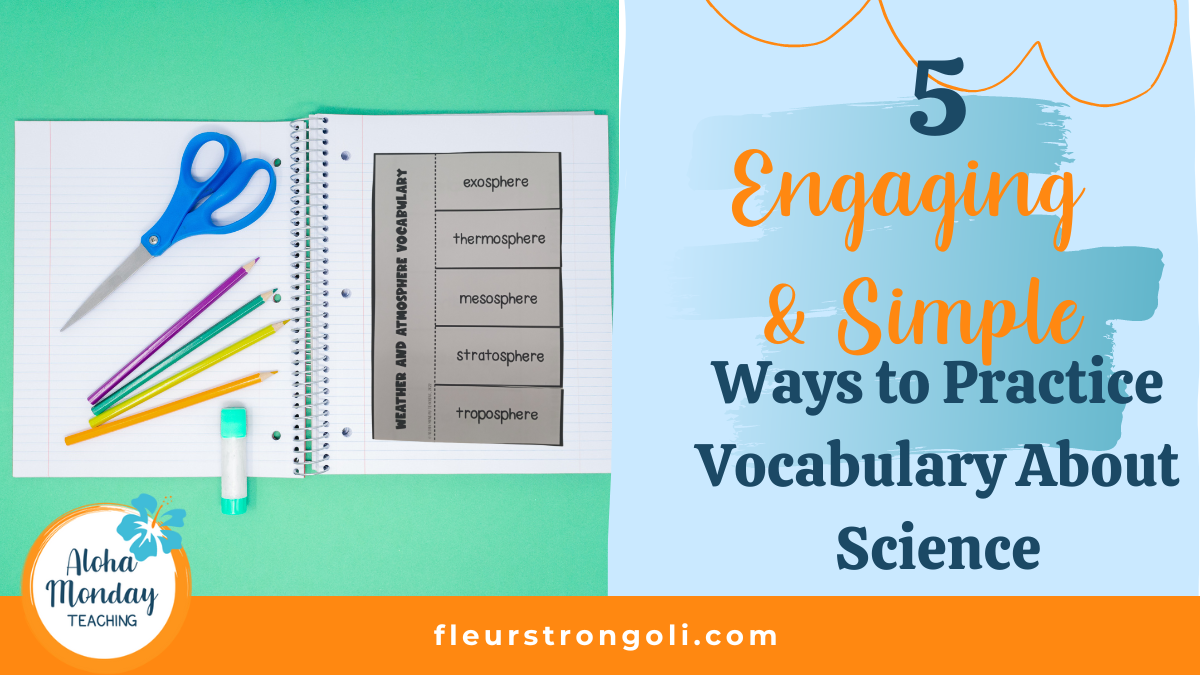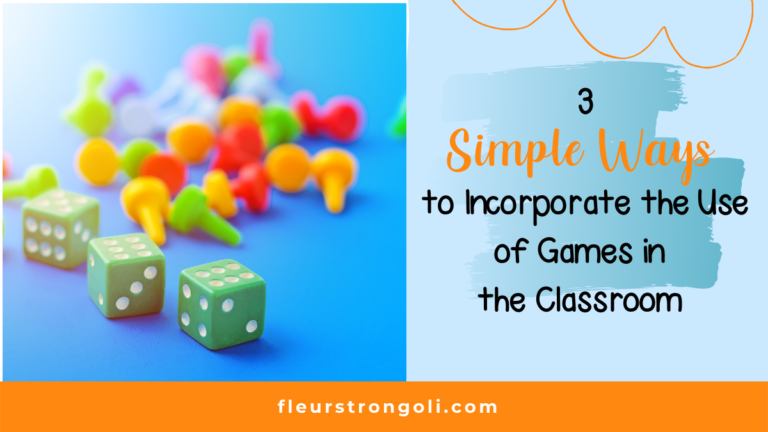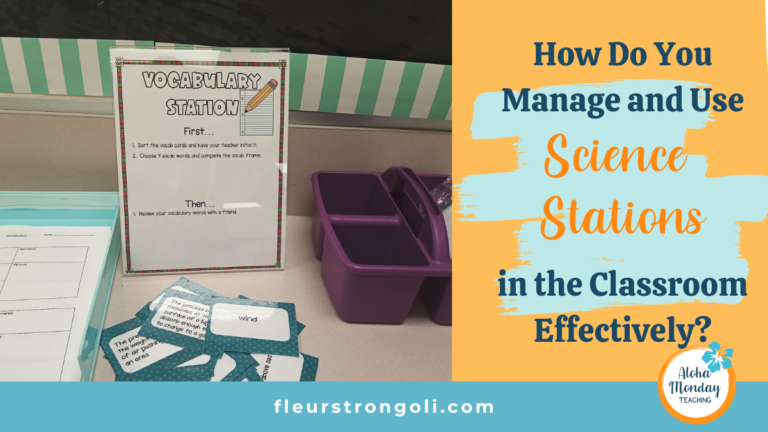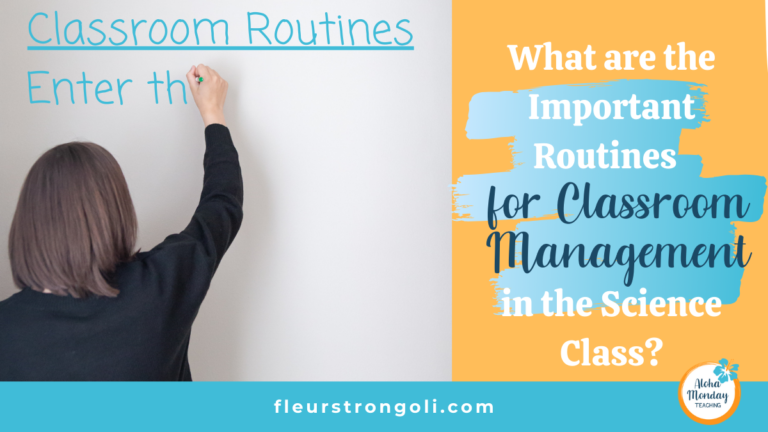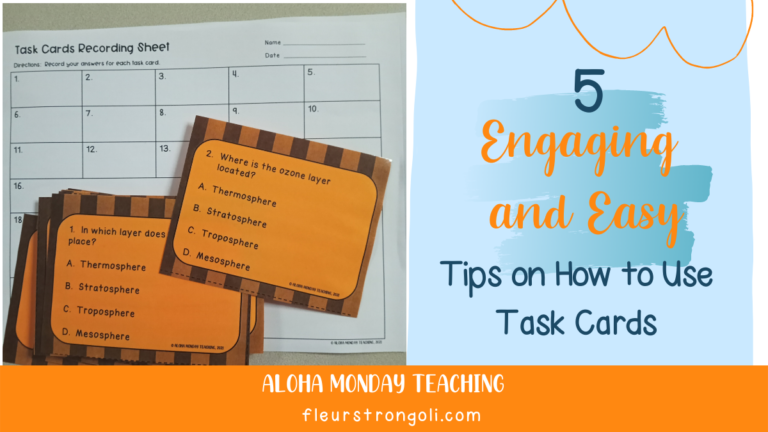5 Engaging and Simple Ways to Practice Vocabulary About Science
As educators, we know how important it is for our students to learn and use vocabulary about Science. When students learn and practice new vocabulary words, it helps them in all areas in school, and in their lives.
In This Post
We will go over a few vocabulary teaching strategies to use during your Science units. We will discuss five activities that students can do in the classroom to learn and practice vocabulary about science. The activities are simple and can be used with any Science unit.
No matter what you are teaching, be sure you’ve downloaded your free guide 5 Daily Must-Do Routines to Run Your Science Classroom Like a Pro.
Teaching Science Vocabulary
Vocabulary about Science can be taught throughout your unit of study. It should be explicitly taught at the beginning of your unit, practiced throughout, and assessed at the end. In a 5E unit, it can be used during each of the steps- Engage, Explore, Explain, Elaborate, and Evaluate. I use many of the activities at the beginning of each class period, during the Vocabulary Station or on a choice board, and as independent assignments. Get a free Vocabulary Station activity here.
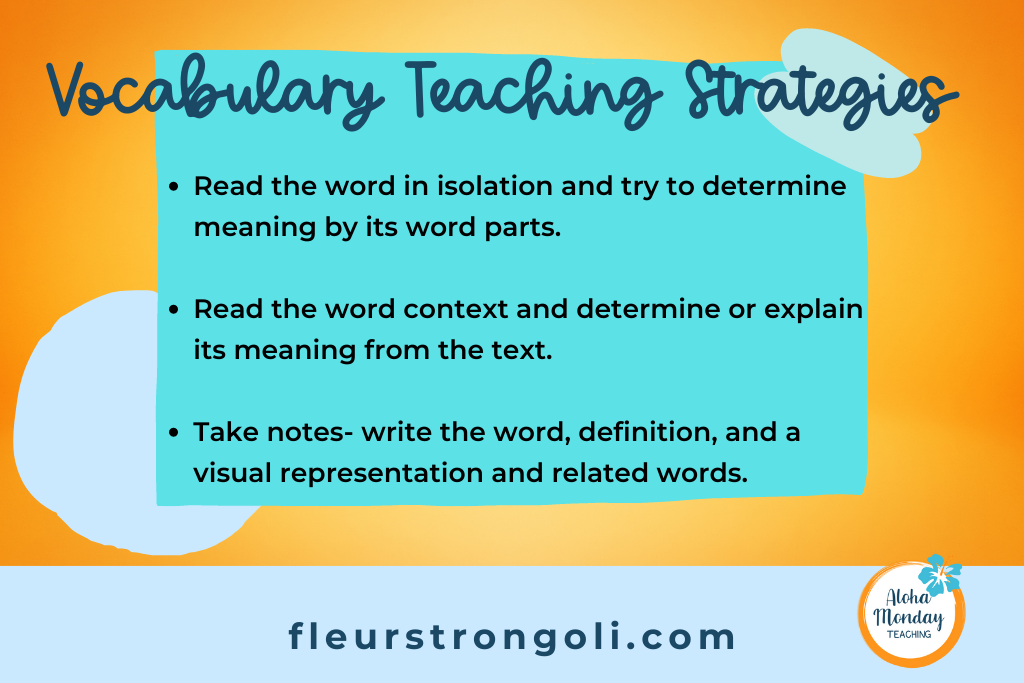
There are different strategies to teach vocabulary. It’s good practice to read the word, and try to determine its meaning by using the word parts. Students should read the words in isolation. Break the words into their parts- roots, prefixes, suffixes to help determine meaning.
Students should read and determine the meanings of words in context. They should be taught, guided, and practice determining the meaning of the vocabulary word while reading a text.
When teaching vocabulary about Science, students should take notes. They write the word and its definition. An important strategy to add to this is having the students create a visual representation of the word. They can also write related words that help them understand and remember the meaning.
5 Activities for Teaching Vocabulary About Science
Giving students time to practice their vocabulary words about science is important. Here are some simple and effective ways that they can practice in your classroom. These can be used with anything you are teaching.
Flashcards
Students create flashcards using index cards. Since some students do not know how to use this as a study tool, it is very important to teach them. After creating their cards, have students look at each definition and decide which words are important keywords. They will highlight these. This helps because they can focus on those keywords, which are likely found in most definitions of that particular vocabulary word.
Next, model for students how to quiz themselves or each other. On your projector, show a definition. I like to have students stand when they know the word. I’ve also used white boards so students can show me the word. This is a great and quick way to review vocabulary words in the classroom. Do this more than once during each unit.
Then students will be able to quiz themselves and each other. Give students about 3-5 minutes of practice each day with their flashcards. And encourage them to do these same things at home.
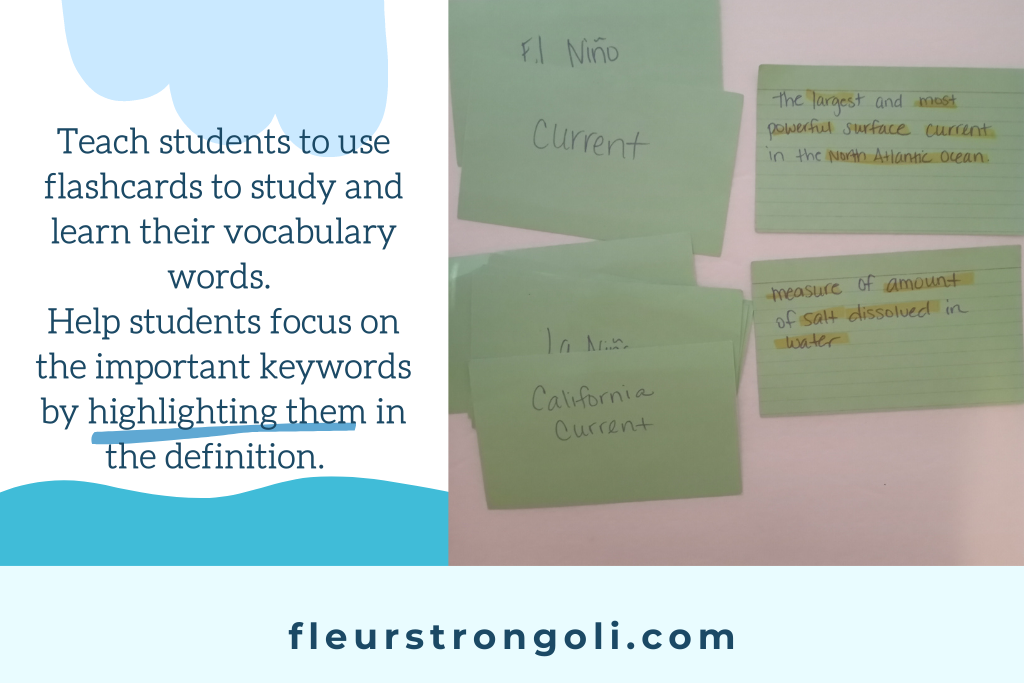
Vocabulary frames
Using vocabulary frames helps students think at a higher level. In the vocabulary frame I use, students write the definition, use the word in a sentence, draw a picture, and write examples or characteristics and nonexamples or non characteristics. I use vocabulary frames during the Vocabulary Station and as independent work.
Vocabulary Matching Activities
Using sorting or matching activities with their vocabulary words is an effective way for students to practice. During a vocabulary station, you can set out some vocabulary matching cards or use self-checking puzzles. Students will match the word and the definition. I have students show me their work and I initial a paper when it is correct. This shows me who may need more help and who has learned the vocabulary words.
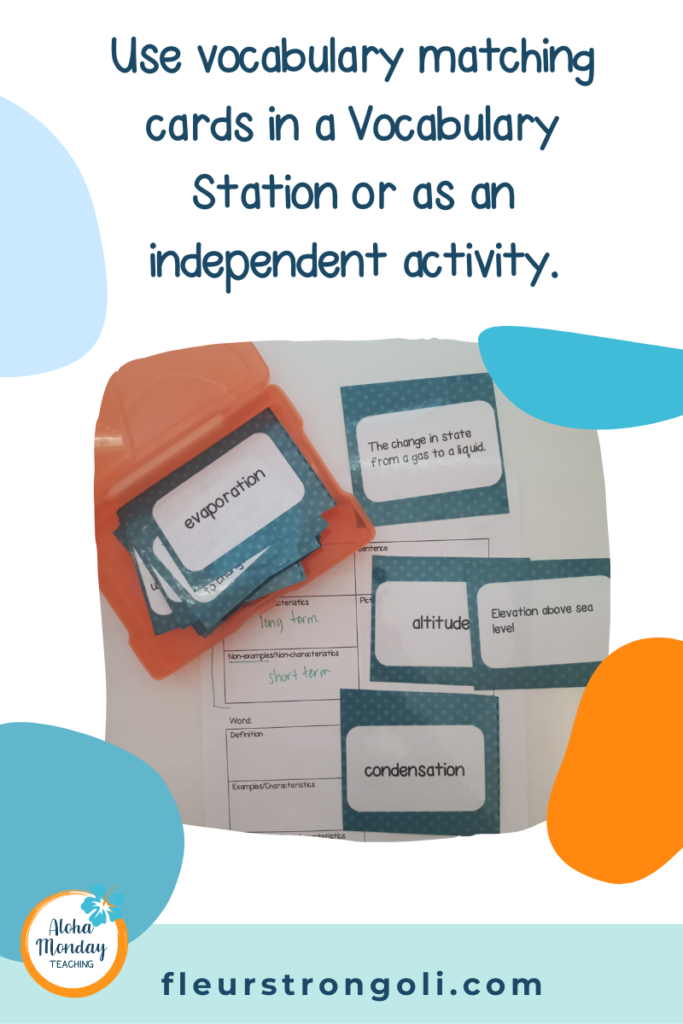
Vocabulary Worksheets
Using worksheets to practice vocabulary is another activity that students can do independently. This makes for a quick formative assessment. Students may read a passage and answer questions about the vocabulary words in the passage. They could fill in blanks or match the words and definitions.
Vocabulary Games
There are many ways to play vocabulary games. Online games like Quizlet give students that gaming practice, but they’re also learning. You can play Bingo with the class or a small group of students. Another game to play with a small group of students is Memory. An easy way to include board games is to add vocabulary cards or questions to a fun board game. When it’s a student’s turn, they answer a question correctly and then they are able to move on the game board. Read more about using games in the classroom in this blog post.
Wrap Up
Engaging students with their vocabulary words is simple, and can be fun! We went over a few strategies on how to teach vocabulary to students, and five activities to practice vocabulary about Science. These should be used in every Science unit to help students learn more vocabulary.
Your Turn
What new vocabulary strategy or activity will you use in your classroom?
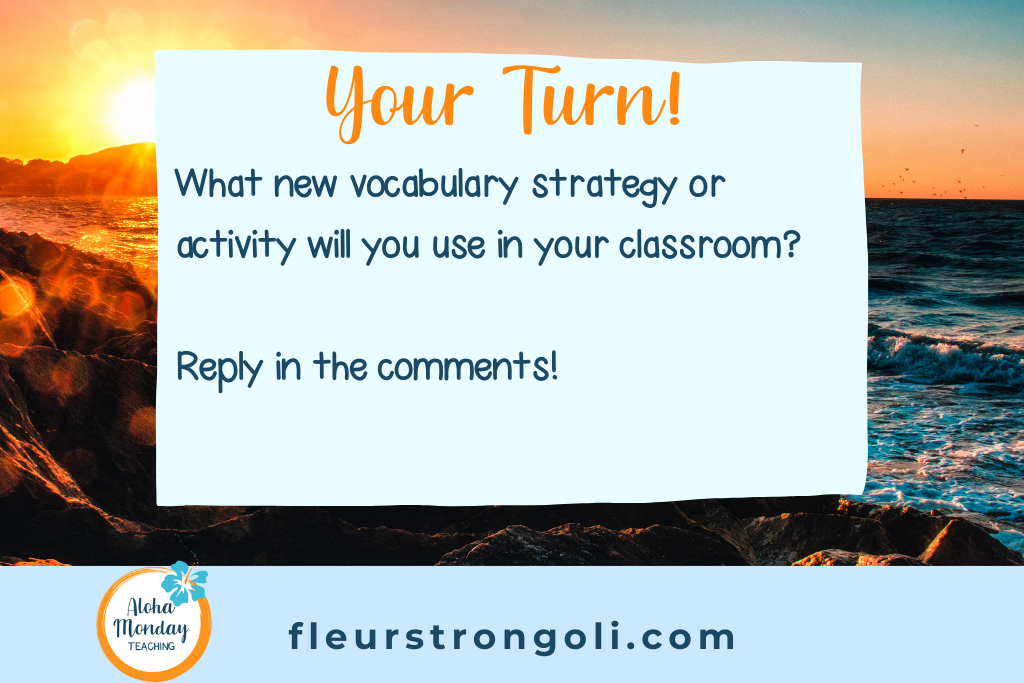
Read More
How Do You Manage and Use Science Stations in the Classroom Effectively?
3 Simple Ways to Incorporate the Use of Games in the Classroom

